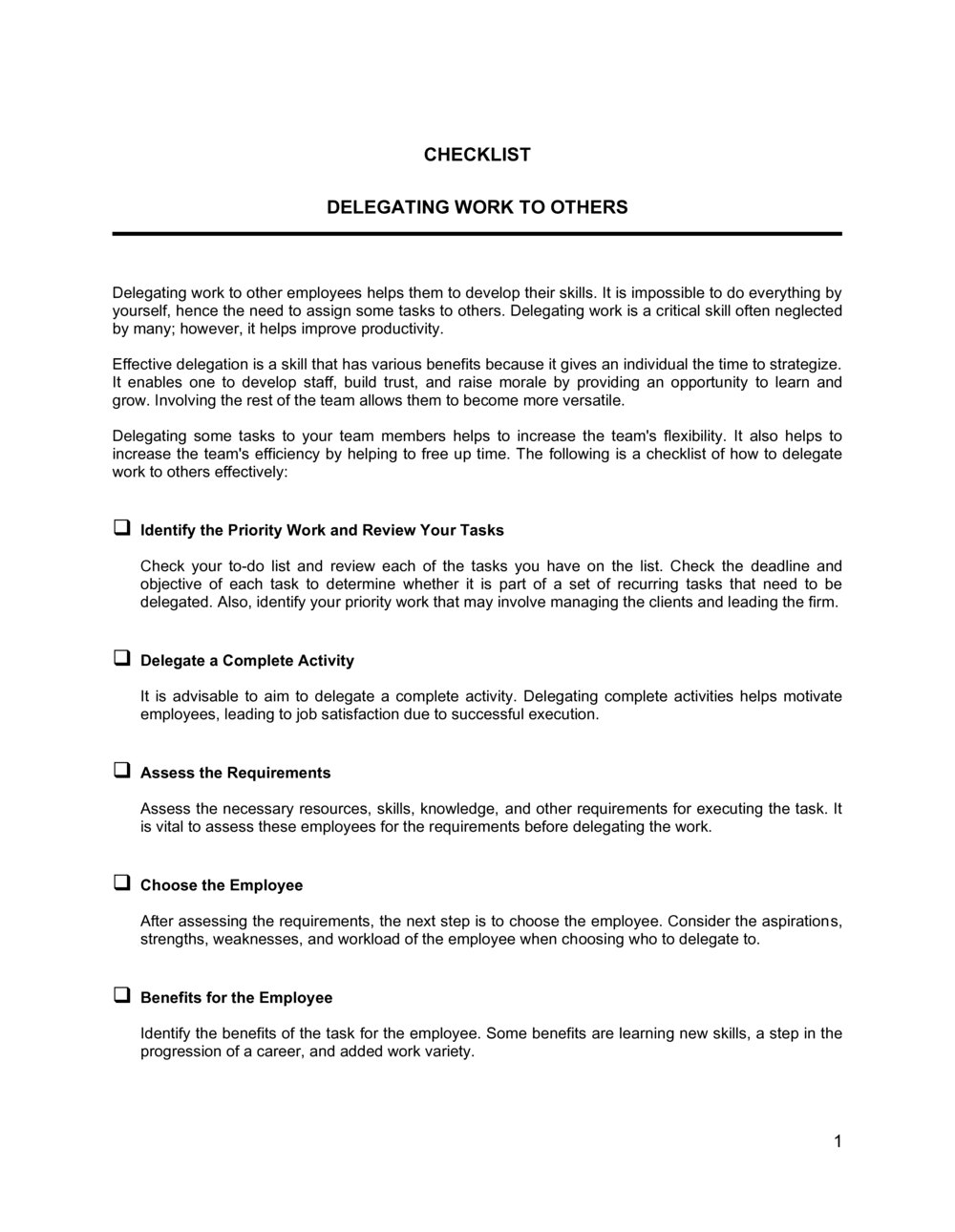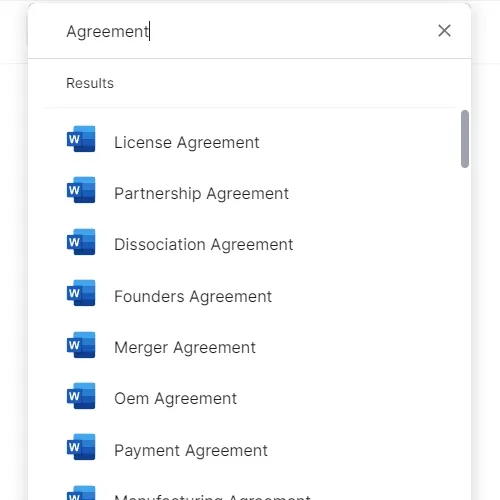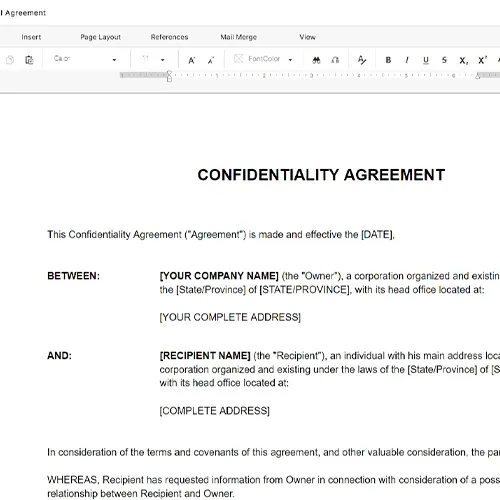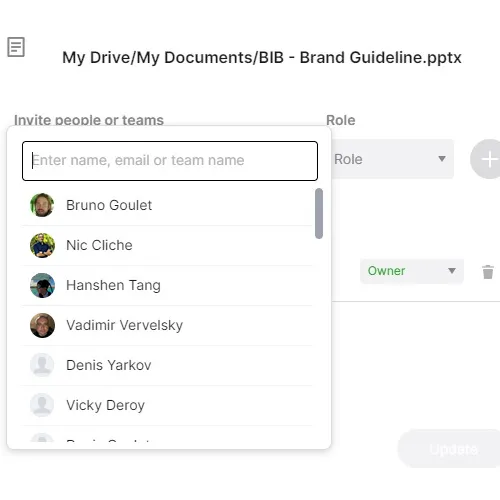Delegating Work To Others Checklist

Sample of Document Content
This delegating work to others checklist template has 3 pages and is a MS Word file type listed under our finance & accounting documents.
Delegating work to others checklist
CHECKLIST DELEGATING WORK TO OTHERS Delegating work to other employees helps them to develop their skills. It is impossible to do everything by yourself, hence the need to assign some tasks to others. Delegating work is a critical skill often neglected by many; however, it helps improve productivity. Effective delegation is a skill that has various benefits because it gives an individual the time to strategize. It enables one to develop staff, build trust, and raise morale by providing an opportunity to learn and grow. Involving the rest of the team allows them to become more versatile. Delegating some tasks to your team members helps to increase the team's flexibility. It also helps to increase the team's efficiency by helping to free up time. The following is a checklist of how to delegate work to others effectively: Identify the Priority Work and Review Your Tasks Check your to-do list and review each of the tasks you have on the list. Check the deadline and objective of each task to determine whether it is part of a set of recurring tasks that need to be delegated. Also, identify your priority work that may involve managing the clients and leading the firm. Delegate a Complete Activity It is advisable to aim to delegate a complete activity. Delegating complete activities helps motivate employees, leading to job satisfaction due to successful execution. Assess the Requirements Assess the necessary resources, skills, knowledge, and other requirements for executing the task. It is vital to assess these employees for the requirements before delegating the work. Choose the Employee After assessing the requirements, the next step is to choose the employee. Consider the aspirations, strengths, weaknesses, and workload of the employee when choosing who to delegate to. Benefits for the Employee Identify the benefits of the task for the employee. Some benefits are learning new skills, a step in the progression of a career, and added work variety. Assess the Drawbacks Assess the drawbacks of delegating tasks, such as the time needed to support the task. Another drawback is the risk of failure and committing to handing over the job.
Reviewed on

Sample of Document Content
This delegating work to others checklist template has 3 pages and is a MS Word file type listed under our finance & accounting documents.
Sample of our delegating work to others checklist template:
CHECKLIST DELEGATING WORK TO OTHERS Delegating work to other employees helps them to develop their skills. It is impossible to do everything by yourself, hence the need to assign some tasks to others. Delegating work is a critical skill often neglected by many; however, it helps improve productivity. Effective delegation is a skill that has various benefits because it gives an individual the time to strategize. It enables one to develop staff, build trust, and raise morale by providing an opportunity to learn and grow. Involving the rest of the team allows them to become more versatile. Delegating some tasks to your team members helps to increase the team's flexibility. It also helps to increase the team's efficiency by helping to free up time. The following is a checklist of how to delegate work to others effectively: Identify the Priority Work and Review Your Tasks Check your to-do list and review each of the tasks you have on the list. Check the deadline and objective of each task to determine whether it is part of a set of recurring tasks that need to be delegated. Also, identify your priority work that may involve managing the clients and leading the firm. Delegate a Complete Activity It is advisable to aim to delegate a complete activity. Delegating complete activities helps motivate employees, leading to job satisfaction due to successful execution. Assess the Requirements Assess the necessary resources, skills, knowledge, and other requirements for executing the task. It is vital to assess these employees for the requirements before delegating the work. Choose the Employee After assessing the requirements, the next step is to choose the employee. Consider the aspirations, strengths, weaknesses, and workload of the employee when choosing who to delegate to. Benefits for the Employee Identify the benefits of the task for the employee. Some benefits are learning new skills, a step in the progression of a career, and added work variety. Assess the Drawbacks Assess the drawbacks of delegating tasks, such as the time needed to support the task. Another drawback is the risk of failure and committing to handing over the job.
Easily Create Any Business Document You Need in Minutes.

Download or open template
Access over 3,000+ business and legal templates for any business task, project or initiative.

Edit and fill in the blanks
Customize your ready-made business document template and save it in the cloud.

Save, Share, Export, or Sign
Share your files and folders with your team. Create a space of seamless collaboration.


